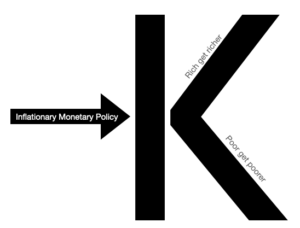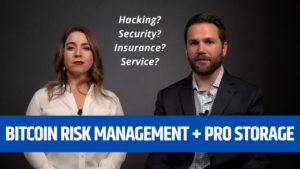
Each year entrepreneurs pitch Venture Capital firms in hopes that their startup company or business expansion will get funded by them. The vast majority do not get funded. Furthermore, “getting funding” almost always means the entrepreneur must sell a sizable piece of his company to the VC.
Getting funded by a VC is a dream, but it can easily turn into a nightmare for both the entrepreneur and the VC. Because the VC owns a piece of the company, if further rounds of funding are needed in the future it could mean diluting only the founder’s ownership, depending on how the contracts were setup. It’s not too uncommon for founders to eventually wind up with a minority stake in their own company and to lose control of it. For the VC, there’s a big chance of failure. They usually need an exit strategy, such as taking the company public to sell its shares to the marketplace or to sell the company to a private party. But before they sell it, they need to try to juice up the revenue of the company to max out the sales price. When maxing out revenue becomes the primary unconditional focus, it’s easy for the business to go in a very different direction than the founder had intended.
The above horrors can happen when an entrepreneur does get funding. Let’s not forget that most entrepreneurs seeking capital just don’t get funded.
These are problems. And yet the world has a way about finding solutions to problems and getting them to those who can benefit. Sometimes the solution can be so incredibly simple that it’s hard to believe. In the case of funding a small business, the solution I see is a matter of breaking the habit of selling equity.
Instead, sell revenue. A slice of your gross revenue, that is. Here are the benefits when raising capital:
- Keep all of your company. Don’t sell it to investors.
- A flexible payment. In a month with low sales, your payment to the investor is lower. In a month with higher sales, your payment to the investor is higher.
- More long term profit is kept. Once you’ve paid the investor fully as agreed, you still own and control all of your company.
Here are the benefits to the investor:
- A built in exit strategy. A revenue participation contract can have a fixed repayment period or a fixed repayment amount, similar to debt.
- Lower risk. It’s easier to project gross revenues than it is to project profit. An investor whose repayment is a percentage of gross revenue only needs to be confident the entrepreneur can and will make the payments.
- More winners. Because of the built in exit strategy, the investor doesn’t have to assume most of their investments will tank and thus doesn’t need to have an astronomical ROI for the slim few that succeed.
For example, an entrepreneur has a business with $100k in gross income and $48k in net income. He needs $50k to expand his business by hiring and training a sales force and getting a larger office. He projects that in 6 months the expansion will result in an increase to $400k in gross income and $250k in net income. So an investor pays $50k to buy the right to receive 20% of the business’s gross revenue each month until those payments total $100k.
The investor will make a 100% ROI once the repayment is completed. If all goes as planned, that 100% ROI will be paid in under 18 months. It could happen faster or slower, depending on how well the business performs as projected.
For the entrepreneur seeking capital, the chances of finding an investor (or investors) can significantly broaden when he can pitch a lower risk investment that has a built in exit strategy.
What’s more, this model is very compatible with smaller investment amounts. In today’s world, a startup with tons of potential might not be able to get VCs’ attention unless they need millions of dollars. With revenue participation contracts, an entrepreneur can seek out tens of thousands or a few hundred thousand dollars in capital from smaller local investors and businessmen. That also means the entrepreneur may be dealing with a kinder local businessman rather than heading out to Silicon Valley to deal with the sharks.


